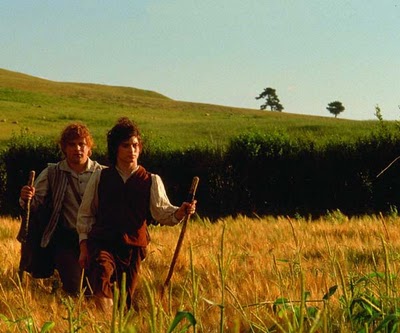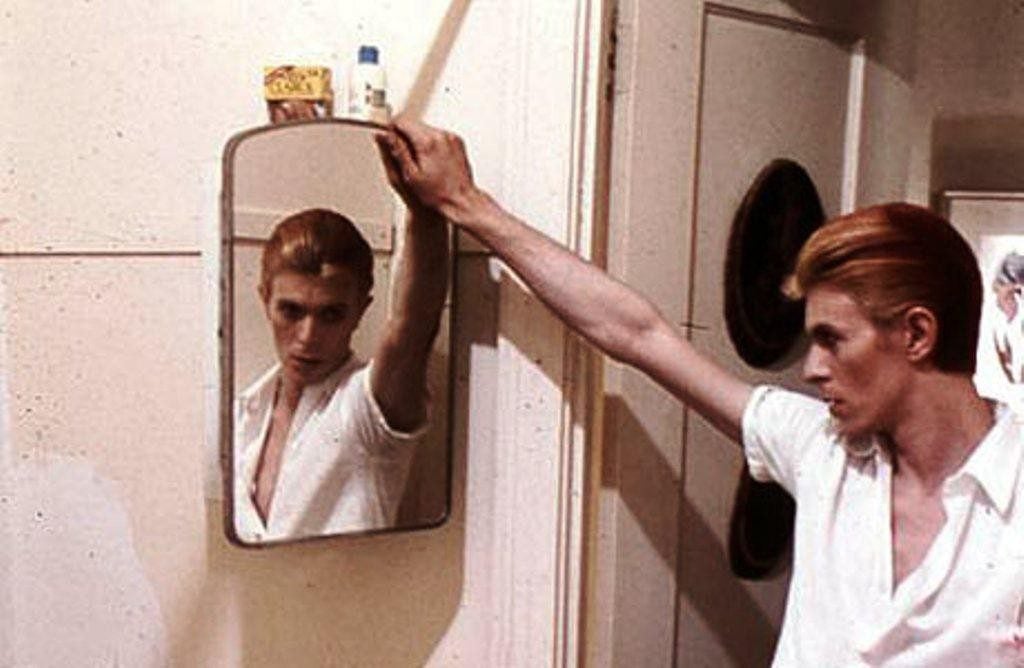There is an ache within atheism an awful lot like unrequited love. There is a nameless and uncomfortable burning within nihilism, agnosticism, and all the lonely fashions of post-Christian man that rings of being rejected. But before I bother you with all that, let’s go on a walk, you and I, around the Point in the hopes of arriving back again, full of understanding.

The pain of unrequited love — of being spurned or friend-zoned — isn’t confined to the mere absence of a loving relationship. It is the absence of everything. A man lacking food is hungry. A man lacking sleep is tired. But a man lacking his lady is destroyed. The entire world is darkened, saturated by absence. There is something about this failure to be loved that invades every aspect of his life and makes getting up in the morning a misery. He will be called hopeless, pathetic, told all sorts of things about fishes, seas, and getting up and moving on — to no avail. You’ve heard his cliches. “Life is not worth living without her,” “She’s all I want,” and:
 That’s what I’m talking about! A lack of love doesn’t limit its misery to the romantic side of life — it ruins your peanut butter sandwich, it makes everything crap, and the everyday bitter.
That’s what I’m talking about! A lack of love doesn’t limit its misery to the romantic side of life — it ruins your peanut butter sandwich, it makes everything crap, and the everyday bitter.
But this would all make complete sense, if Love is infinite in quality. Leaving off the philosophical argument for this, let’s just look at our own experience of the thing. Clearly, there is no man on earth who would say, “I am loved far too much,” nor a single married couple who would claim “we’ve reached the limits of our love.” Nor, I would venture to guess, does any one imagine there is a limit at all — “This much love and no farther.” We naturally treat love as an infinite. What the Song of Songs claims isn’t mystical hyperbole, it’s an entirely practical expression of human existence — “Many waters cannot quench love, neither can the floods drown it: if a man would give all the substance of his house for love, it would be utterly despised.” Well of course. You cannot fill an infinite space. You cannot pay for something infinitely priced. Love is infinite.
philosophical argument for this, let’s just look at our own experience of the thing. Clearly, there is no man on earth who would say, “I am loved far too much,” nor a single married couple who would claim “we’ve reached the limits of our love.” Nor, I would venture to guess, does any one imagine there is a limit at all — “This much love and no farther.” We naturally treat love as an infinite. What the Song of Songs claims isn’t mystical hyperbole, it’s an entirely practical expression of human existence — “Many waters cannot quench love, neither can the floods drown it: if a man would give all the substance of his house for love, it would be utterly despised.” Well of course. You cannot fill an infinite space. You cannot pay for something infinitely priced. Love is infinite.
But if this is true, then the misery of the lover makes a sad sort of sense. He does not crave a singular thing, he craves an infinity. He has a longing for the everlasting. He wants the evermore. If that desire is unmet or refused him, of course it will saturate his very being! Of course it’ll ruin his peanut butter sandwich! He — in a very real way — misses everything.
God, how fascinating that we have some grasp of the infinite! There is nothing in nature, no concrete example of the everlasting that we could develop our notion of infinity around, yet it is as primordial as beer, written on hearts. The most ancient of myths had this in common — the idea of immortality, the infinite life.
We don’t logic our way into believing that beauty is infinite, we first of all experience it, for what man can conceive of a thing too beautiful? Whenever we experience beauty there is a natural lifting of ourselves into the infinite: We don’t feel sated by beauty — “this all there is” — we feel a sweet sort of erotic desire towards it — “more, more, more!” And what more appropriately human way to describe the infinite than “more, more, more”? We are strangely haunted by the never-ending, we homo sapiens.

Is it a coincidence that very things we associate with infinity are our definitions of Who God Is? God is Love. Love is infinite. God is Beauty. Beauty is infinite. God is Goodness. Goodness is infinite. We’ve all heard these definitions of God, but do we grasp what they mean?
Stay with me: When we perceive infinities — as noted — we are thrust until the feeling of evermore. If you don’t believe me on this point, listen to this:
Is it anything but sensible that our minds and hearts immediately associate this rather insane experience of longing with a Singular Being who can fulfill our longing for “more, more, more?” In the manner of Lewis, the statement must be made: If I find in myself infinite desires, I can only conclude that there exists an infinite satisfaction — a Heaven.
“You are Beauty! You are Beauty!” When St. Francis cried this from Mt. Verna the mystical and the practical were combined. Think of our infinite desires as holes in the heart. What can fill an infinite need except an infinite reality? We desire evermore beauty — well there is Beauty, and we call Him God. Do not accuse the Theist of irrationality — it is only logical to conclude the existence of a Being towards who our infinite desires are aligned. The atheist must confront the question that if there is no infinite satisfaction, why is heart filled with infinite desires? Is it a mere cruelty?
And thus out from the Mordor of verbiage we come back to the Point. The problem I have with atheism, materialism and all the rest is not so much that they are false ideologies, as that they demand I be content with the limited. Our desire for beauty cannot be infinite, for an infinite desire constitutes an infinite satisfaction, and there is no such thing as Heaven. I must be content with living a life that is exhaustible, a life where love has its bounds, truth is caged and beauty stops at a certain point. For if what we can scientifically see is all there is, then there is a limit to all. Religion frees us to plunge unimaginable depths — atheism denies our propensity for infinity and demands we play in the shallows.
It’s a lot like unrequited love in that sense — it never is allowed to enter into infinity. Or rather, atheism is much like the lover who — having been rejected — struggles to convince himself that he never really loved, that his infinite desire does not exist. (And thus it is common to hear arguments that goodness is relative or that love is mere chemical reaction amongst my atheist friends.)
But Christian, the call of your God is this: “This is the bread that came down from heaven. Your forefathers ate manna and died, but he who feeds on this bread will live forever.” Christ bled and died that we might have infinite love, infinite goodness, infinite beauty, and the infinite satisfaction of our hungry, pining hearts. We are to be infinitely fulfilled. We are meant for unimaginable ecstasy. Let us never cease to plunge the depths.












